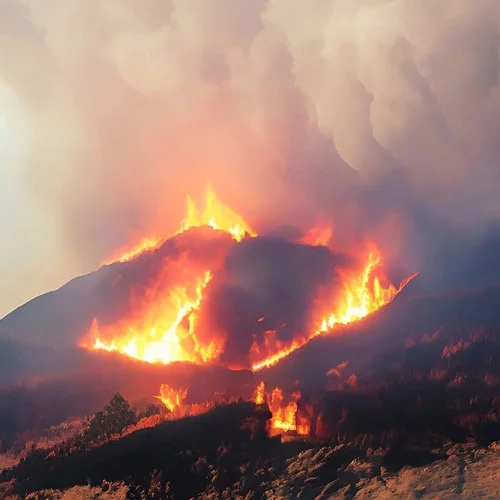We recently detailed Assembly Bill 254, which overhauls California’s approach to wildfires. In addition to promoting new transmission facilities, replenishing the wildfire fund, streamlining the siting process and exempting underground plans, there was a notable addition that has not received as much attention: the Natural Catastrophe Resilience Study. There’s a great article by Travis Ritchie, California Wonders if it is Doing Wildfire Risk All Wrong, that covers this topic. In particular, he notes that utilities in California are vulnerable to wildfire liability ...
During the past several years, California legislators have been pushing through new legislation to increase potential housing opportunities in California. In October, Governor Newsom signed California Senate Bill 79 (SB 79), which opens up new residential developments near rail and bus stations in major California communities. Specifically, SB 79 creates rules to override local zoning regulations related to height and density for sites near transit-oriented development stops and applies to the “urban transit communities” of Los Angeles, Orange, San Diego, Alameda ...
Public infrastructure projects typically take years of planning. And sound government forecasting necessitates identifying future roads or extensions on general plan documents. If a property owner decides to purchase property that is likely to be impacted by a future public project, once that project comes to fruition and it’s time to acquire the property, how does the valuation work? Do the appraisers consider the project and its impact on the property, or do they disregard it? This is a complicated, fact-intensive issue, and one that requires balancing eminent domain laws ...
A quick overview of Eminent Domain and its use in Texas
The power of eminent domain originates in the Fifth Amendment of the United States Constitution (Takings Clause). A State’s eminent domain authority is delegated by specific legislatively enacted statutes to state agencies, political subdivisions (i.e. cities, counties and special districts) and even some private entities, which are bound by relevant constitutional restrictions when exercising the power of eminent domain to condemn private property. Condemnation is the legal process that governmental entities and ...
Bernadette Duran-Brown and I will be presenting “Inverse Condemnation: Money & Dirt, Valuation & Legal Issues" during the Appraisal Institute’s 58th Annual Litigation Seminar on November 6, 2025. Our panel will provide an overview of inverse condemnation law, how it applies to property owners and public agencies, how it has expanded to include potential natural disasters and different valuation issues that arise in the context of this area of law..
The Appraisal Institute empowers real property valuation professionals through community, credentialing, education, body ...
When public agencies or utilities move forward with infrastructure projects, one of the most critical steps is determining exactly what property rights must be acquired. Too often, agencies focus solely on the permanent footprint of the project, only to discover late in the process that they lack authority for construction activities, staging areas or access. Early project planning on the front end helps avoid costly delays, litigation and redesign.
Existing Rights
The first analysis should always be – what rights are already in place? Many agencies or utilities hold ...
In the wake of devastating 2025 wildfires, Assembly Bill 254 stands poised to reshape California's wildfire prevention, mitigation and funding strategies. From a groundbreaking $18 billion infusion into the state’s Wildfire Fund to new rights of first refusal for insurance subrogation claims, this legislation could have sweeping implications for utility companies, insurers, and wildfire-affected communities. A host of additional provisions also target transmission infrastructure upgrades, wildfire risk reduction and clean energy innovations.
Stay tuned as we break ...
While there are many benefits to owning property in a common interest community, most people love to hate them. Condemnors should be especially wary when seeking to acquire property owned by a homeowners association. Here are a few things to consider:
- Are CC&Rs considered property or contracts in your state? The Declaration of Covenants, Conditions, and Restrictions, or CC&Rs, is a document recorded on the property that sets out rules for ownership in the community. The covenants are reciprocal, meaning the owner of each lot has obligations to every other lot, as well as a right of ...
When a municipality acquires private property in an eminent domain case, it must first pay just compensation to the property owner. The municipality must file a complaint—a lawsuit—asking the appropriate court to enter a final order of condemnation, vesting title to the property in the municipality. Litigation can take years as the amount that the municipality must pay to the property owner is generally determined by a jury trial—at the very end of the lawsuit’s life.
This can be challenging for municipalities with tight project timelines or an immediate need to put the land ...
The contours of inverse condemnation liability are often tested by creative California plaintiff’s lawyers. In an opinion earlier this year, one Northern California Federal Court dealt with a novel lawsuit in which the Vichy Springs Resort asserted Federal and state-based inverse condemnation theories against the City of Ukiah arising out the City’s shooting range used to train its police officers (Vichy Springs Resort v. Ukiah).
According to the complaint, guests have been visiting the resort for almost two centuries to take in the curative powers of the carbonated warm ...
Eminent Domain Report is a one-stop resource for everything new and noteworthy in eminent domain. We cover all aspects of eminent domain, including condemnation, inverse condemnation and regulatory takings. We also keep track of current cases, project announcements, budget issues, legislative reform efforts and report on all major eminent domain conferences and seminars in the United States.
Stay Connected
 RSS Feed
RSS Feed
Categories
- Administration
- Appraisal
- Arizona
- California
- CLIMATE CHANGE
- CONGRESS
- Construction
- Court Decisions
- Energy & Utilities
- Environmental Law
- EPA
- Events
- FAQs
- Goodwill
- GOVERNMENT ADMINISTRATION
- Inverse Condemnation & Regulatory Takings
- Land Use Planning
- Lawsuit
- New Legislation
- Possession
- Projects
- Public Agency Law
- Public Policy
- Publications
- Real Estate and Property Rights
- Redevelopment
- Regulatory Reform and Proposed Rules
- Right to Take
- Right-of-Way
- Seminars
- Speaking Engagements and Presentations
- Texas
- trial
- Valuation
- Videos
- Water
- Wildfire Management









